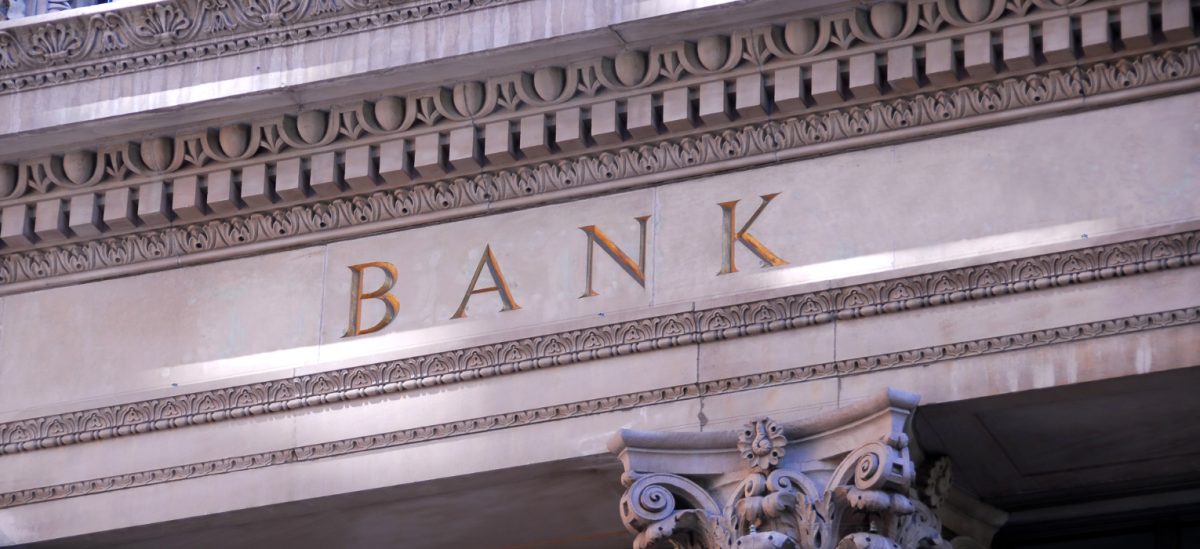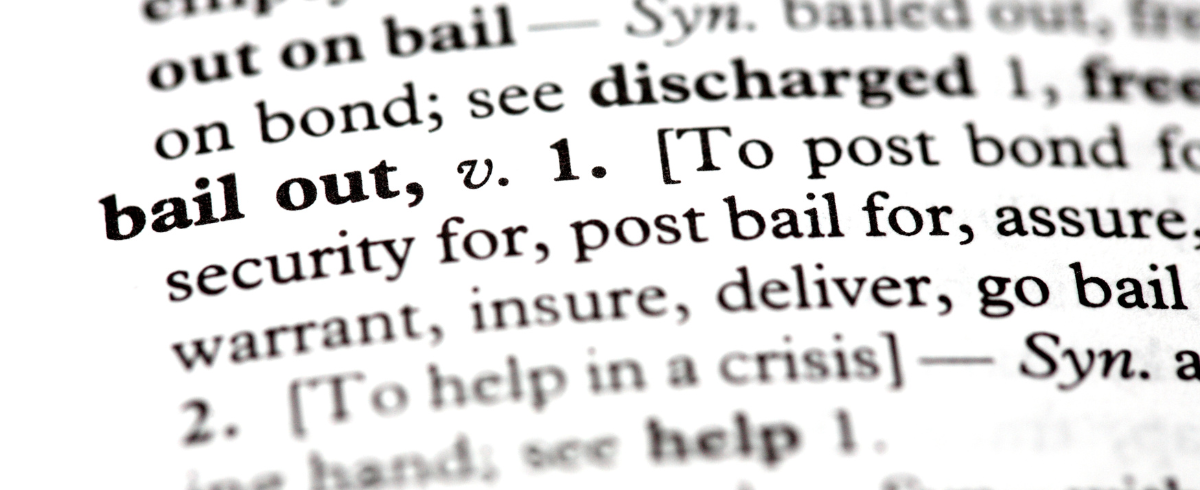It annoys me to no end that even as banks have massively diluted their shareholders to raise capital, they are still paying dividends. In the current environment they should focus all their efforts on capital preservation. They should completely eliminate their dividend. Besides, given the number of new shares they have issued, cutting the dividend per share by a certain percentage, does not decrease the cash outflow by that percentage.
Month: September 2008
Tuesdays with Rupert
Vanity Fair has a fascinating article on Rupert Murdoch. Michael Wolff has been given unprecedented access to Murdoch for an upcoming biography. I was surprised by the picture that emerges of him as a man. He seems much less well thought through than I imagined.
Read the article at:
http://www.vanityfair.com/culture/features/2008/10/wolff200810?printable=true¤tPage=all
The Clinton Global Initiative is very impressive
It’s very rare for former heads of states to play a meaningful role in world affairs after their presidency. In fact, their employment option is often limited to tours on the speaker circuit. The Clinton Global Initiative is a welcome exception.
I had the privilege of attending the inauguration on September 15-17, 2005 and have been impressed with all they have accomplished since then. I also respect the work they have done with their Millennium Network to broaden their appeal beyond donors who can afford to pay $15,000 to attend their annual meeting.
I especially admire the launch of MyCommitment.org. The Clinton Global Initiatives has always been about making a commitment to better the world. In fact people who make commitment and do not honor it are not invited back. It’s a great idea to open up the concept to everyone and anyone and to publicly recognize the commitment and difference that individuals can make.
Many sites from Wikipedia to Yelp have recognized the potential of empowering their users and publicly recognizing their contribution. I am glad charities are opening up to it as well!
I look forward to impact of all those pledges in the years to come!
Nigeria on the Potomac :)
Dear American:
I need to ask you to support an urgent secret business relationship with a transfer of funds of great magnitude.
I am Ministry of the Treasury of the Republic of America. My country has had crisis that has caused the need for large transfer of funds of 800 billion dollars US. If you would assist me in this transfer, it would be most profitable to you.
I am working with Mr. Phil Gram, lobbyist for UBS, who will be my replacement as Ministry of the Treasury in January. As a Senator, you may know him as the leader of the American banking deregulation movement in the 1990s. This transactin is 100% safe.
This is a matter of great urgency. We need a blank check. We need the funds as quickly as possible. We cannot directly transfer these funds in the names of our close friends because we are constantly under surveillance. My family lawyer advised me that I should look for a reliable and trustworthy person who will act as a next of kin so the funds can be transferred.
Please reply with all of your bank account, IRA and college fund account numbers and those of your children and grandchildren to [email protected] so that we may transfer your commission for this transaction. After I receive that information, I will respond with detailed information about safeguards that will be used to protect the funds.
Yours Faithfully Minister of Treasury Paulson
—
Seen at: http://www.boingboing.net/2008/09/22/hank-paulsons-bailou.html
Jim Cramer's August 2007 outburst is a must watch!
I am not usually a fan of his style, but in this case, his outburst was justified and eerily prescient!
All Hail the Fed: why to be skeptical about the priciest bailout ever
By Steven E
Worst financial crisis since the Great Depression? Yes—but don’t be cowed by talk of calamity. Disasters call for prudence and circumspection, not frenzied action. Congress, in particular, must carefully consider the downsides of any bailout plan before granting the Treasury department the unprecedented, unfettered, and certainly un-American power to nationalize private assets of dubious value with $700 billion of public money—a monumental sum that eclipses even the cost of the Iraq war. For congress, waiting a few weeks to legislate a solution does mean protracting the current crisis. But there is no reason to believe that the world economy would collapse in that time. On the other hand, it is reasonable to believe that implementing the proposed bailout plan may have long-term adverse effects on capitalism. The solution congress is about to legislate will foster corruption, increase market volatility, address the effects of a problem rather than its cause, and it sets a dangerous precedent. None of these shortcomings are being discussed by the press.
- It will lead to corruption.
Laws that govern securities trading are designed to prevent malfeasance and self-dealing. These regulations don’t apply to the Treasury department because the department was never intended to transact with the private sector. Having the Treasury department bid on private securities would be a mistake. The department has no checks and balances. We’ll see cronyism in the distribution of these funds. At the same time, there will be no provisions for judicial review, public contests, or appeals. The process will be secretive, undemocratic, and anticapitalist. - It will not resolve market volatility, and may increase it.
The lack of transparency that is bound to accompany the infusion of $700 billion into the economy—more specifically, into firms that took down our economy—will rally some investors sometimes and disappoint others. The point is there will be more surprises, not fewer. - It addresses the effects of problems rather than their cause.
This bailout addresses the effects of serious problems (declining house prices; defaulting mortgages; a drying credit market) but ignores the cause of those problems (regulatory missteps).An approach that offers the veneer of financial security without addressing the roots of instability amounts to a formula for disaster. A sudden flurry of liquidity in the credit markets can lead to a bout of foolish borrowing by distressed corporations. Financial institutions may repeat some of their earlier mistakes.
- It sets a precedent. This begins with $700 billion, but who knows where it ends?
The entire country is faced with an economic catastrophe. Two men—Henry Paulson and Ben Bernanke—say the solution is to have every American lend $2000 to a secretive governmental agency. This is not our only option. We can think of others. Ask yourself this: Even if all the Bush administration’s hyperbole about financial mushroom clouds is true, even if that rhetoric weren’t suffused by the administration’s ignoble history, even if Henry Paulson and Ben Bernanke were the two most capable, trustworthy men on the planet (and yes, they are capable and trustworthy, but in a few months a new administration will take office and there may be a new treasury secretary), even if a solution were absolutely necessary to avert a full-scale depression—even if all that were the case, wouldn’t it still be preferable for congress to take time to evaluate other options? This solution may prove more dangerous than the problem.
Credit Default Swaps
By Stacie Rabinowitz
So I mentioned to Fabrice that I had been explaining credit default swaps to a friend of mine without a finance background, and he asked me to be so kind as to explain it to those of you who are also a bit in the dark about what these things are. Mostly because he’s too lazy to do it himself 🙂
To put in the usual caveats: I took finance in business school, and I’ve run this by enough bankers who agree that I seem to know what I’m saying that I’m pretty confident I have my facts right, but I have never worked with them in real life and so would love any corrections from those of you actually in the industry. Also, I am going to try to explain why I think there should have been more red flags raised about them. Yes, I am sure they had a valid functional purpose for a small base of consumers, but I think that at this point we can all safely agree that they were overissued and overtraded and in my opinion there were some warning signs to this long before banks started going under.
So what exactly is a credit default swap? Mechanics aside, functionally it is like an insurance policy for a bond. You pay someone a small premium so that if the company that issued the bond goes under, you at least get some of your principal back from this second party. It’s kind of like if I lent Fabrice money, and even though he was paying me interest on it, I was worried that with his risk-loving lifestyle he might die before he could pay me back. So, if I took out a separate insurance policy on his life so that I got my principal back (or a portion of it) in the event of his death, that would be a credit default swap.
Problem #1: A credit default swap is not actually a swap. I’m sure that the mechanics of the transaction make it a swap, but functionally it’s really an insurance policy. You can tell because many banks were making a lot of money off of them, and theoretically swaps are supposed to be zero-cost: you swap the returns on two assets, but you are also swapping the risks, and therefore the compensation for them. A typical swap: Fabrice is a French citizen, I am a US citizen. I have a company I want to start distributing wines in France, but I need French citizenship to get government approval because they’re so particular about their wines. Fabrice wants to copy someone’s successful French company in the US, but he doesn’t get the best tax breaks because he’s not a citizen. So I start Fabrice’s company, he starts mine, and we agree to swap the returns. They’re equally risky ventures, so we don’t exchange any additional money. The fact that so many people were making money off of these credit default “swaps” should have alerted someone to the fact that they were not really paying off like swaps at all, and the fact that they were being called swaps anyway, hiding their true function, meant something fishy was going on.
Problem #2: Corporate bonds pay more than US Treasury Bills (the so-called “risk-free” asset). There is a decent probability that corporations will go under and not be able to pay back their debt, whereas there is a much smaller probability that the US government will. This difference is why corporate bonds pay more than US Treasuries – investors are being compensated for their risk. The more likely a company is to go under, the higher the payouts to the bondholder because of the higher the risk the investor is assuming. Now, if I’m paying someone money to insure my bond, I am trying to buy away that risk. The value of the insurance payment should be exactly equal to the difference between the payoff to the bond and the payoff to a Treasury Bill. If I wanted to be protected against my investment counterparty going under, I should have just bought a Treasury. To use the Fabrice example from above, if I was worried he was going to die before he was able to pay me back, I should have just not lent him the money. Expected payoff from Fabrice = Value of payment * (1-probability of his death). To make this equal to the amount I could have gotten investing my money in a Certificate of Deposit at a bank, I would have to charge him extra to compensate me. This extra would be exactly equal to the insurance cost, since the company would only sell me a policy for Value of payment * (probability of his death) in order to make money. So if investors are finding it more valuable to buy the bond + CDS instead of a simple Treasury, it means that something in the market is probably mispriced. And in finance, mispricing either gets cleared out really quickly or leads to big trouble.
Problem #3: The market for these devices has been reported to have been huge multiples of the value of the underlying assets. In other words, there is $1000 being floated around in investments that pay off in case Fabrice dies based on him not being able to pay back my loan, but the loan was only $50 to begin with!
What Makes Us Happy?
There is a great series of interviews on the topic of happiness on Ted.com.
Check them out at:
http://www.ted.com/index.php/themes/what_makes_us_happy.html
Tropic Thunder is very funny!
Tropic Thunder is very funny!
Given my travels in the past month, I am falling a bit behind in my movie watching, but I just had the opportunity to watch Tropic Thunder down here in Buenos Aires and I very much enjoyed it. Robert Downey Junior’s performance is amazing and Tom Cruise is hilarious. I bet Tom Cruise would rekindle his career if he took on more roles like this one.
A comedy in this genre is extremely difficult to make the fine line between being ridiculous and funny, but they pull it off with brio. After watching the movie I felt elated and happy all day long!
Go watch it!
Interesting unforeseen application of social networks
It will never displace traditional news, but Twitter is excellent for confirming earthquakes and other disasters, natural and unnatural. Last week-end, you could confirm an earthquake took place in the Bay Area 10 seconds after it happened! This was well before anything go across the news wires.
Many other interesting and unexpected uses of social networks will emerge.
Fannie Mae & Freddie Mac: How we got here and what to do next
Fannie Mae and Freddie Mac are privately owned and run government sponsored enterprises (GSEs). Fannie Mae was founded as a government agency in 1938 to develop the secondary mortgage market. In 1968, in part to remove its activity from the federal budget, it was converted into a private corporation. In 1970, Freddie Mac was created by Congress, also as a private corporation, to expand the secondary mortgage market.
The GSEs purchase mortgage loans from banks. Those banks are happy to sell their mortgages to free up capital to originate more mortgages and to avoid interest rate risk – they mostly issue long term fixed rate mortgages but pay their depositors a variable rate of interest leaving them vulnerable to increases in interest rates. The GSEs then combine similar loans into mortgage pools. These pools are formed into pass-through securities where the principal and interest on the mortgages in the pool are passed through to the investors in the securities. The GSEs can either sell the mortgage-backed securities to other investors or retain the securities for themselves. Either way, the GSE bears the default risk of the mortgages, which is the source of the recent crisis.
Congress thought that by assuming default risk on mortgage-backed securities, Fannie and Freddie would increase demand for those securities thus increasing the supply of capital available to mortgages, lowering mortgage interest rates and spurring home ownership.
The government never gave an explicit backing to the GSEs, but it was widely believed that Fannie and Freddie would not be allowed to fail. A private entity with government backing is a terrible idea because it creates significant moral hazard. Because such a structure “privatizes the profits, but socializes the losses”, its managers have an incentive to take a lot of risk to maximize the potential gains.
Fannie Mae and Freddie Mac have a dual comparative advantage:
- The implicit government backing gives them lower bowering costs
- Lower capital requirements allows them to take on more leverage
The value of these privileges is estimated to be worth between $122 and $182 billion according to a 2005 study by the Federal Reserve – mostly accruing to its shareholders and managers. Between 1998 and 2003, Fannie’s top fixed executives received $199 million! With so much at stake Fannie and Freddie built formidable lobbying machines and engaged in aggressive lobbying traditional banks are barred from undertaking.
These advantages allowed them to crowd out private mortgage lenders and concentrated all the risk in two institutions. This essentially guaranteed that they had become too big to be allowed to fail as they own or guarantee about half of the $12 trillion US mortgage market.
As house prices declined and home owners started to default on their mortgages, losses at Fannie and Freddie started to mount. Given how little capital they had, they started facing a liquidity crisis. Congress’ first reaction was to preserve the status quo and allow Fannie and Freddie to grow out of its problems. Last December the limit on the size of mortgages purchased by the GSEs was raised from $417,000 to $729,750. This July, legislation was passed allowing the US Treasury to extend credit to the GSEs or purchase equity in the company.
Allowing the GSEs to guarantee more mortgages only crowds out private banks and in turn encourages those to take more risk. Similar legislation which allowed insolvent S&Ls to survive during the 1980s forced healthier to take more risks and made the S&L crisis much worse than it would have been.
The July rescue attempt failed. The firms’ stock prices collapsed as investors feared they would be wiped out in a government rescue. This curtailed the firms’ ability to issue capital which in turn forced the government to rescue them. It probably would have been best for the agencies to be fully nationalized, but that that would have required an act of Congress. Instead Fannie and Freddie will be taken in “conservatorship”, a watered-down form of receivership, by their revamped regulator, the Federal Housing Finance Agency, until they are once again “sound and solvent”. They will have access to a loan facility secured by their assets. To avoid moral hazard, the Treasury will buy preferred shares as needed which will be repaid ahead of existing preferred and common stock.
The deal is not as bad for taxpayers as it could have been. In exchange for keeping the firms above water, the government will receive a $1 billion fee in preferred stock at no cost along with warrants giving it the right to 80% of the firms’ common stock at a nominal price. The two CEOs are being replaced and the organizations will no longer be allowed to lobby lawmakers.
It worries me that the eventual outcome for Freddie and Fannie has been left for Congress and the next administration to sort out. Winding them down might not be an option yet given how important they currently are to the mortgage market, but their business should eventually be privatized and split between a dozen or more banks with no government backing. In down markets a few of those may fail, but it would not undermine the stability of the mortgage market as a whole as the concentration in Fannie and Freddie has, especially given how little reserve capital they were allowed to hold. It’s a good sign that the Treasury plan calls for them to shrink by 10% a year starting in 2010 until they reach an undefined “less risky size”. This will allow banks and other financial institutions to expand their role in the mortgage market, ultimately resulting in a stronger mortgage finance system.
I just finished Grand Theft Auto 4!
While I was disappointed with the graphics and the multiplayer play, I really loved the depth of the single player story line. I am excited to see what they will come up with next.
Next up: Metal Gear Solid 4 (PS3), Command and Conquer Red Alert 3 (PC), Starcraft II (PC), Diablo III (PC), Halo Wars (Xbox 360), Gears of War 2 (Xbox 360), Company of Heroes II (PC), Call of Duty 5 and 6 (Xbox 360). I can’t wait!
French Entrepreneur Dinner

I had the pleasure of organizing a redux of my last entrepreneur dinner in Paris in September 2006. I am happy to report that French entrepreneurship is alive and well:
- Michel de Guilhermier sold Photoways and started Inspirational Stores which creates online stores for luxury niche brands such as La Duree.
- Gael Duval sold Un77 and is now CEO of JeChange.fr for which he just raised 3 million euros in a tough market.
- Fabrice Boutain is still CEO of Anxa which is reaching an interesting scale and is very profitable.
- Aymeric sold 2xmoincher to Les 3 Suisses and is probably already dreaming of his next project.
- Bertrand Pulles remains a very active and successful angel in France.
- Patrick Robin had to change his approach in 24h00.fr from a private sales club to an ecommerce portal for women and is approaching profitability on an interesting revenue base.
- Walter Bouvais’s Terra Economica is well on its way of becoming the reference in green media in France.
- Johanna Gozlan a very talented architect in Paris left a large firm to start jgastudio.
It was such a joy to see everyone so full of life, energy, optimism and joy!
Keep at it guys, you will change the world!
Predictably Irrational is fascinating
Dan Ariely shares with his readers the results of dozens of experiments where he tested people’s decision making ability. Not only are people much less logical than they think they are, but they are predictably and repeatedly irrational! He finds out that we are easily swayed by emotions, social norms and even words we read!
This fun light hearted introduction to behavioral economics is a fun read and a fantastic complement to The Logic of Life, Freakonomics and The Undercover Economist.













